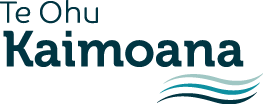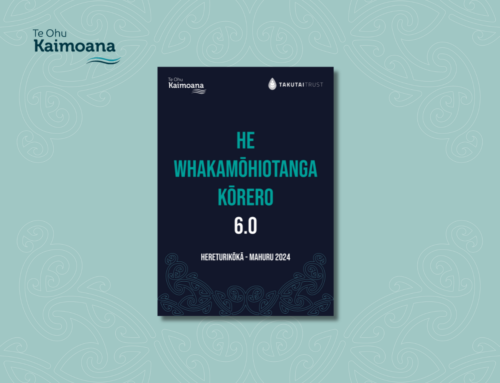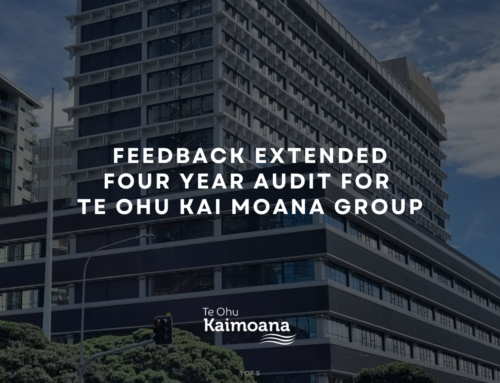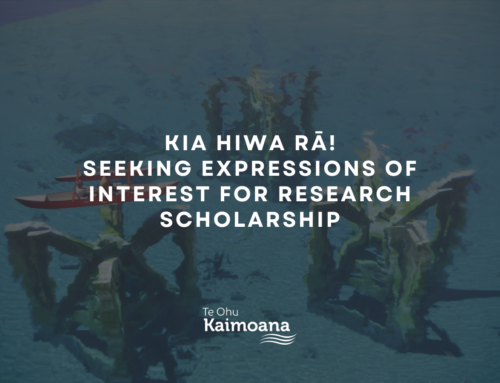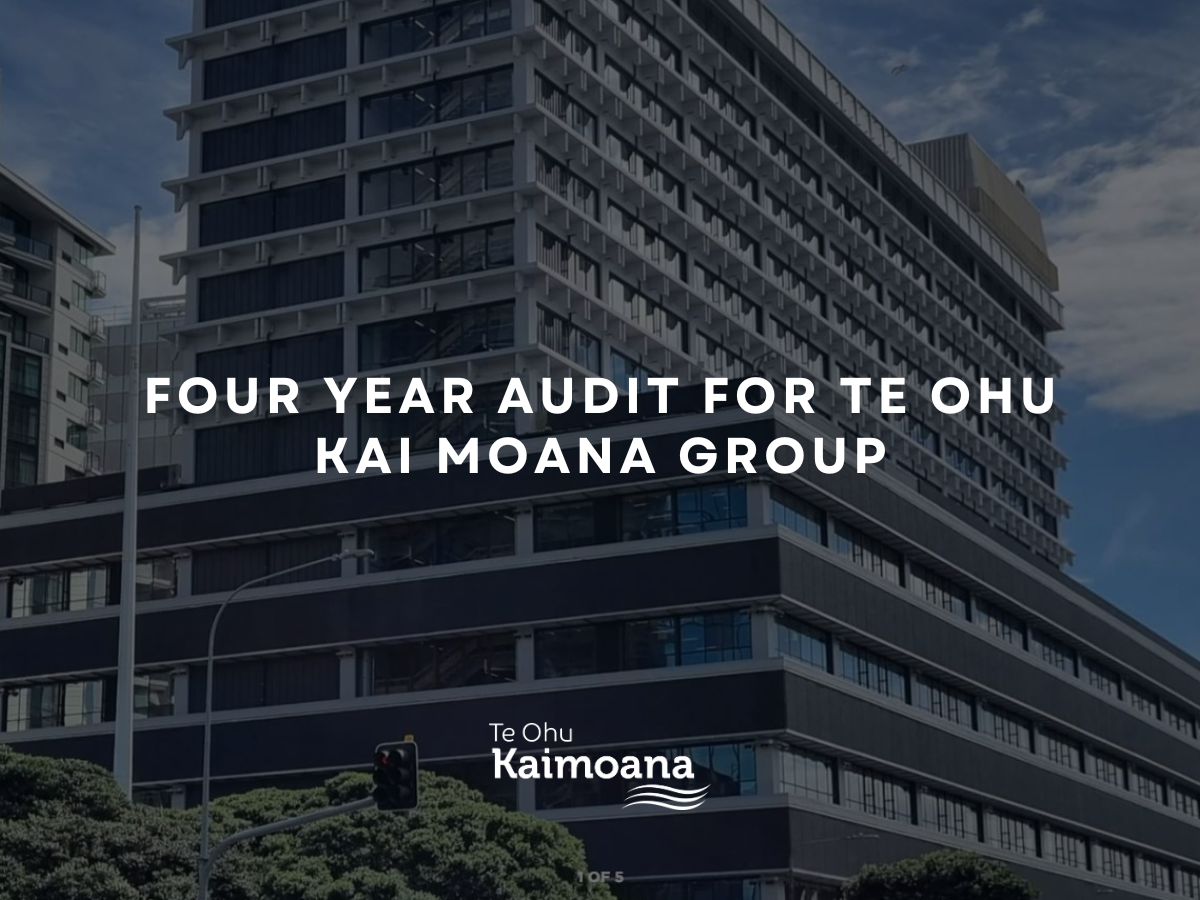
Te Ohu Kai Moana Group (Te Ohu Kai Moana Trustee Limited, Aotearoa Fisheries Limited, Te Pūtea Whakatupu Trustee Limited, and Te Wai Māori Trustee Limited) have commenced the third four-year performance audit required under the Maori Fisheries Act 2004(Māori Fisheries Act). The audit will cover the period from October 2020 – September 2024.
Sections 105-113 of the Act set out the audit scope and requirements and a copy of these requirements are below (Appendix 2) for your information. The last audit was conducted in 2012. Due to the independent review of Māori Commercial Fisheries Structures in 2015, consequential proposed amendments to the relevant legislation, and the COVID lockdown periods – iwi exempted the entities from undertaking the subsequent four-year audit process in 2016 and 2020 by resolutions at general meetings.
Te Ohu Kai Moana Trustee Limited, Aotearoa Fisheries Limited, Te Pūtea Whakatupu Trustee Limited, and Te Wai Māori Trustee Limited have jointly agreed to appoint Mark Hickford and Anaru Mill to conduct the 2024 audit. Brief biographical information for Mark and Anaru is set out in Appendix 1 below.
As a team, Mark and Anaru are experienced with judicial system and legal matters, legislation and its interpretation, policy and associated processes, and have a good grasp of the history of the Fisheries Settlement and the Māori Fisheries Act.
As with previous reviews, Mark and Anaru would like to invite comment from iwi on the performance of the four entities either in writing or by interview. If your iwi would like to comment in writing on the performance of one or all of the four entities, please email your comments to Tania Heyrick (tania.heyrick@teohu.maori.nz) by Friday 2 August.
If your iwi would prefer to an interview with Mark and Anaru, please contact Tania before Friday 19 July 2024 to arrange a time to meet with them. We thank you in advance, for your contribution to this performance audit.
Appendix 1
Dr Mark Hickford is a barrister based at Thorndon Chambers in Wellington, New Zealand (webpage: Mark Hickford — Thorndon Chambers). Mark obtained his doctorate from the University of Oxford in 1999. His first degrees were in law, history and political studies from the University of Auckland. He was the Pro Vice-Chancellor of Government, Law and Business at Victoria University of Wellington until 4 July 2023, having assumed that role from 26 October 2021. Prior to that he was the Pro Vice-Chancellor and Dean of Law from 11 May 2015. Admitted to the bar in New Zealand in 1993, he has had an extensive legal practice in both the public and private sectors since then, with specialist expertise in Māori-Crown Relations law and practice (including Treaty settlements), constitutional and public law, the Treaty of Waitangi, and indigenous rights. Mark has appeared as counsel in the senior courts, as well as in specialist jurisdictions, such as the Waitangi Tribunal, Māori Land Court, and Environment Court.
Dr Hickford was the legal advisor to the Prime Minister in the Prime Minister’s Policy Advisory Group in the Department of the Prime Minister and Cabinet from 2010 until 2015. He has been on the Board of Directors for the Australia New Zealand School of Government (ANZSOG) and a member of Te Kura Kaiwhakawā/Institute of Judicial Studies, and the New Zealand Council of Legal Education.
As Crown Counsel in the Treaty of Waitangi and natural resources areas from 2002, he advised many public sector agencies across the justice, natural resource and economic sectors, as well as Ministers of the Crown directly. Mark was the Chief Legal Adviser and Director of the Legal Services Directorate at the Ministry for Primary Industries from August 2013 until April 2014 (seconded from the Department of the Prime Minister and Cabinet). Mark was at Chapman Tripp (Auckland office) from 1993 until 1996 and was also based at a public law specialist firm, Chen Palmer & Partners, from 2000 until 2002. He has published extensively including the monograph Lords of the Land: Indigenous Property Rights and the Jurisprudence of Empire (Oxford: Oxford University Press, 2011).
Anaru Mill (Ngāti Porou) is an experienced consultant and public policy advisor with expertise in the Māori-Crown relationship, economic and social development, data analysis and technology.
Anaru was commissioned as co-lead of the Vulnerable Communities workstream for the All-of-Government COVID-19 Response. Other recent assignments include advising on Resource Management Act reform, the waters reform, and the recent response to severe weather events.
He has also been involved with providing advice or negotiations on Māori interests and Treaty matters and has led and support a range of projects across a number of different government organisations including the Department of the Prime Minister and Cabinet.
Anaru is a member of multiple public and private sector Boards and is also a Lead Reviewer for the Public Service Commission’s Performance Improvement Framework (PIF) and Agency Capability Review processes.
Appendix 2 – Extract from Māori Fisheries Act 2004
Audit of entities
Section 105 Audits
(1) Not later than 4 years after the commencement of this Act,—
(a) Te Ohu Kai Moana Trustee Limited must arrange for an audit of Te Ohu Kai Moana Trustee Limited; and
(b) Aotearoa Fisheries Limited must arrange for an audit of Aotearoa Fisheries Limited and its subcompanies; and
(c) Te Putea Whakatupu Trustee Limited must arrange for an audit of Te Putea Whakatupu Trustee Limited; and
(d) Te Wai Māori Trustee Limited must arrange for an audit of Te Wai Māori Trustee Limited.
(2) The cost of an audit conducted under this section or section 106 must be paid by the entity being audited.
Section 106 Subsequent audits
Each of the entities referred to in section 105, or 2 or more jointly, must arrange for subsequent audits to be conducted not later than 4 years after the preceding audit, unless,—
(a) in the case of Te Ohu Kai Moana Trustee Limited, Te Putea Whakatupu Trustee Limited, or Te Wai Māori Trustee Limited, at least 75% of the mandated iwi organisations and representative Māori organisations at a general meeting convened by Te Ohu Kai Moana Trustee Limited, vote not to conduct an audit of 1 or more of the relevant entities; or
(b) in the case of Aotearoa Fisheries Limited, the shareholders of at least 75% of the income shares vote at an annual general meeting of Aotearoa Fisheries Limited, not to conduct an audit.
Section 107 Person to conduct audit
(1) Each of the audits referred to in sections 105 and 106 must be carried out by an independent person—
(a) appointed by the entity that is to be audited; and
(b) who is appropriately qualified to conduct the audit.
(2) A person appointed to conduct an audit is not required to be—
(a) a chartered accountant within the meaning of section 19 of the New Zealand Institute of Chartered Accountants Act 1996; or
(b) qualified to undertake financial audits.
(3) In carrying out an audit, the person appointed must—
(a) maintain the appropriate degree of impartiality and independence; and
(b) take all reasonable steps to ensure that his or her judgment is not impaired by any relationship with, or interest in, the entity subject to audit.
(4) The independence of a person appointed to conduct an audit is not compromised merely because that person has a beneficial interest under this Act.
Section 107(2)(a): amended, on 7 July 2010, by section 10 of the New Zealand Institute of Chartered Accountants Amendment Act 2010 (2010 No 74).
Section 108 General scope of audits
An audit conducted under section 105 or section 106 must consider and report, in relation to the entity being audited, on—
(a) the objectives established by the board of directors of the entity; and
(b) the extent to which those objectives are consistent with the effective implementation of the duties and functions of the entity under this Act or any other enactment; and
(c) the progress made by the board of directors towards achieving the objectives; and
(d) the policies and strategies established by the board of directors to achieve the objectives and perform the duties and functions of the board and its directors; and
(e) the effectiveness of the policies and strategies referred to in paragraph (d); and
(f) the quality and timeliness of the reporting documents prepared to meet the reporting obligations under this Act or another enactment.
Section 109 Audit of Te Ohu Kai Moana Trustee Limited
In the case of an audit of Te Ohu Kai Moana Trustee Limited, the audit must consider and report on—
(a) the progress that Te Ohu Kai Moana Trustee Limited has made towards allocating and transferring settlement assets; and
(b) the contribution that Te Ohu Kai Moana Trustee Limited has made towards assisting iwi to meet the requirements for recognition as mandated iwi organisations.
Section 110 Audit of Aotearoa Fisheries Limited
(1) In the case of Aotearoa Fisheries Limited, an audit must consider and report on—
(a) the performance of Aotearoa Fisheries Limited in meeting its constitutional requirement to work co-operatively with iwi on commercial matters; and
(b) the commercial performance of Aotearoa Fisheries Limited in comparison with other participants in the fishing industry, including its net profit after tax as determined in accordance with generally accepted accounting practice, and changes in the value of the company.
(2) In this section a reference to Aotearoa Fisheries Limited includes its subcompanies.
Section 111 Audits of Te Putea Whakatupu Trustee Limited and Te Wai Māori Trustee Limited
(1) In the case of Te Putea Whakatupu Trustee Limited, an audit must consider and report on the contribution that Te Putea Whakatupu Trustee Limited has made towards promoting education, training, and research in relation to Māori involvement in fisheries, fishing, and fisheries-related activities.
(2) In the case of Te Wai Māori Trustee Limited, an audit must consider and report on the contribution that Te Wai Māori Trustee Limited has made in advancing the interests of Māori in freshwater fisheries.
Procedure after completion of audit
Section 112 Procedure for auditor and entity audited
(1) As soon as practicable after conducting an audit under section 105 or section 106, the auditor must—
(a) prepare a written audit report that includes—
(i) the findings made in the audit; and
(ii) the recommendations of the auditor; and
(b) distribute the audit report to—
(i) each entity that is subject to audit; and
(ii) Te Ohu Kai Moana Trustee Limited, in the case of an audit of Aotearoa Fisheries Limited, Te Putea Whakatupu Trustee Limited, or Te Wai Māori Trustee Limited.
(2) Not later than 40 working days after receiving an audit report under subsection (1), each entity subject to audit must—
(a) prepare a plan specifying the actions that it intends to take to address the findings and recommendations of the audit report; and
(b) provide a copy of that plan to Te Ohu Kai Moana Trustee Limited.
(3) After an audit has been completed, an entity subject to audit must include in its next annual report a description of the progress it has made in addressing the matters specified in the plan prepared under subsection (2)(a).
Section 113 Procedure for Te Ohu Kai Moana Trustee Limited
(1) Not later than 60 working days after receiving an audit report under section 112(1), Te Ohu Kai Moana Trustee Limited must distribute to the members and alternate members of Te Kawai Taumata, to all mandated iwi organisations, and to all representative Māori organisations—
(a) the audit report; and
(b) the plan prepared under section 112(2) by each entity that is subject to audit; and
(c) in the case of an audit of Aotearoa Fisheries Limited, Te Putea Whakatupu Trustee Limited, or Te Wai Māori Trustee Limited, any further plan prepared by Te Ohu Kai Moana Trustee Limited to address the findings and recommendations of the audit report.
(2) At its next general meeting after it has received an audit report under section 112(1), Te Ohu Kai Moana Trustee Limited must provide for consideration of—
(a) the audit report; and
(b) the plans referred to in subsection (1)(b) and (c), as relevant; and
(c) any comments from mandated iwi organisations or representative Māori organisations on the audit report or any plans.
